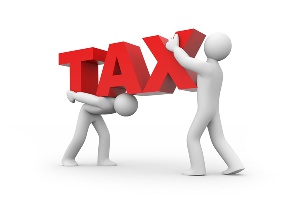 Tobacco tax will reduce the present consumption rate
Tobacco tax will reduce the present consumption rate
Civil Society organisations and the World Health Organisation (WHO) have called for a further increase in tobacco tax, in keeping up with best practices around the world and to reduce the present consumption rate.
Presently a pack of King size cigarette containing 20 stick sells for GH¢6; Pallmall brand sells for GH¢4; London Brown/White also sells for GH¢5.
While the product is sold in packs across the continent, retailers in Ghana sell in sticks for between 20-40pesewas; making it easy for teenagers to afford.
Aside the health benefits of taxing people out of cigarette use, government can realise a lot of revenue by imposing what has come to be known as ‘sin tax’ in many countries.
Available data shows that a dollar increase in tobacco tax would result in roughly US$141 billion more revenue for government.
The WHO Country Representative, Dr. Owen Kaluwa, Speaking at this year’s World No Tobacco Day (WNTD) held in Accra said the WHO’s Framework Convention on Tobacco is the world’s most powerful tool to tackle the negative impacts of tobacco to development.
“In particular, increasing tobacco taxes and prices are proven and effective ways to reduce demand for tobacco by reducing its affordability. This discourages consumption, improves health of people and communities and reduces the burden of disease and death.”
Mr. Kaluwa also advised government and the relevant authorities to institute measures to control illicit trade of tobacco products to reduce its accessibility and use.
Labram Musah, Programmes Director, Vision for Alternative Development (VALD), stated that the increase in tobacco prices remain a very effective way to improving people’s health and improve a country’s development.
“By doing so, the cost of cigarettes on the market is also expected to rise and become less affordable to people, especially the youth. The action will generate a lot of revenue for the government to use for other developmental projects of the economy.
We are calling upon the government to take concrete steps towards the achievement of Sustainable Development Goal by making tobacco a national priority specifically including tobacco control in Ghana’s development agenda,” he said.
Tobacco control attempts
In July 2015, Parliament approved an increase in the ex-factory price of cigarette from 150 to 175 percent.
Nonetheless, Ghana’s excise tax, as a percentage of cigarette prices, is considered among the lowest in the West African sub-region; a situation that has led to increased imports and sale of the commodity in the country.
South Africa, in April this year, increased the so-called “sin taxes” – excise taxes on tobacco and alcohol – to raise revenue of R5.1 billion and make way for the introduction of a sugar tax on sugar-sweetened beverages later in the year. The excise duty rate for tobacco products was increased from between 8% and 9.5%.